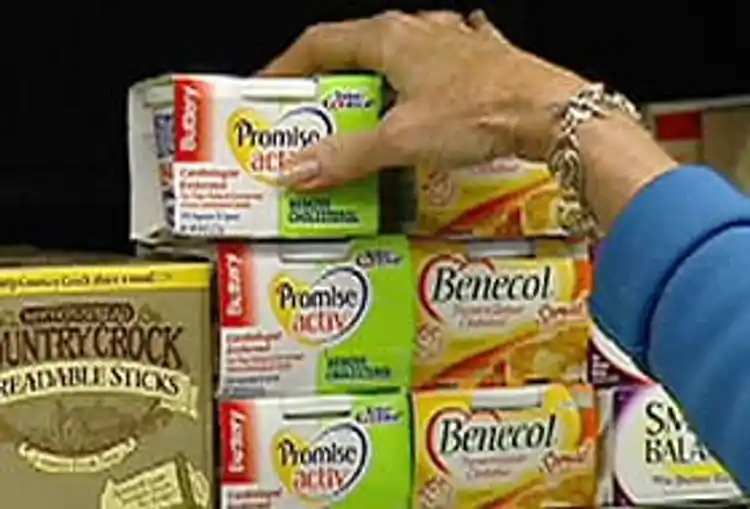Healthiest Supermarket Foods

Hide Video Transcript
Video Transcript
Narrator
Despite the difference in their ages, Deb Nilsen and Geri Simmons have a lot in common. Deb Nilsen, Family History of Heart Disease
My family suffers from heart disease, high blood pressure, high triglycerides, high cholesterol. Geri Simmons, Emory University Heartwise Patient
My mother had three heart attacks before the last one took her away. Narrator
And while Jeff Howard is a diabetic and Ron Gordon isn't, both have had heart surgery Jeff Howard, Diabetic/Heart Patient
I tended to think I was bullet proof and invisible and those people who had complications from diabetes were somebody else. Narrator
Today Deb, Geri, Jeff and Ron try to exercise regularly and watch what they eat. Ron Gordon, Heart Patient
I got to learn to read the labels, looking for trans fats, looking for sodium…. Narrator
If you or someone in your family has diabetes or a heart condition, the grocery store can be your ally IF you know where to look. Start in the produce section and choose a variety of fresh fruits and vegetables. They are naturally low in fat, sodium, and rich in cholesterol lowering fiber. You can also choose frozen fruits and vegetables— if you buy simple ones without any sauces they can be better choices than canned because they eliminate salt—and that's a must to control blood pressure and manage heart disease. Narrator
Let me show you what I mean. Most Americans only need about 1500 mg of sodium each day. And in one serving of canned corn you can get as much as 340 mg. In a no salt added version you only get 15 mg, but if you choose a bag of frozen corn you can cut that to zero. I think the healthiest choice is pretty obvious. Narrator
The dairy section should be your next stop. Always choose low or non-fat dairy items to limit the amount of saturated fat --that's fat that comes from animals—and do the same when you choose your butters and oils. Check the label look for UN-saturated fats, like canola, sunflower and olive oil. Aim for less than 16 grams saturated fat a day. Narrator
Be on the lookout for plant stanols—those are natural substances that block cholesterol absorption in the intestines. They're good for heart health,and are being added to a number of products like margarines. Narrator
Be very careful to avoid trans-fats…. A lot of products claim to be free of "trans-fats" but they could contain as much as .5 grams per serving, which could easily add up. Check the label—if it says hydrogenated or partially hydrogenated it contains trans fat. Narrator
Protein—it's important to your health but can also add lots of fat to your diet, so be sure to choose lean cuts of meat like round, chuck, sirloin and tenderloin. Avoid processed meats that contain plenty of sodium. Skinless breast of chicken and turkey are also wonderful options and don't forget to add fish to your diet at least twice a week for heart healthy omega 3 fatty acids. Narrator
And lastly, we need to add some fiber to your diet. You'll want to add some beans, lentils and other sources of soluble fiber not only to keep your digestive track working well but also to combat cholesterol. Oatmeal is an excellent choice, but if you're a cereal lover, look for some that have whole grains and a few grams of fiber per serving. Adults need 25-38 grams fiber daily and cereals are a great way to help meet your needs. For WebMD, I'm Kathleen Zelman. 
